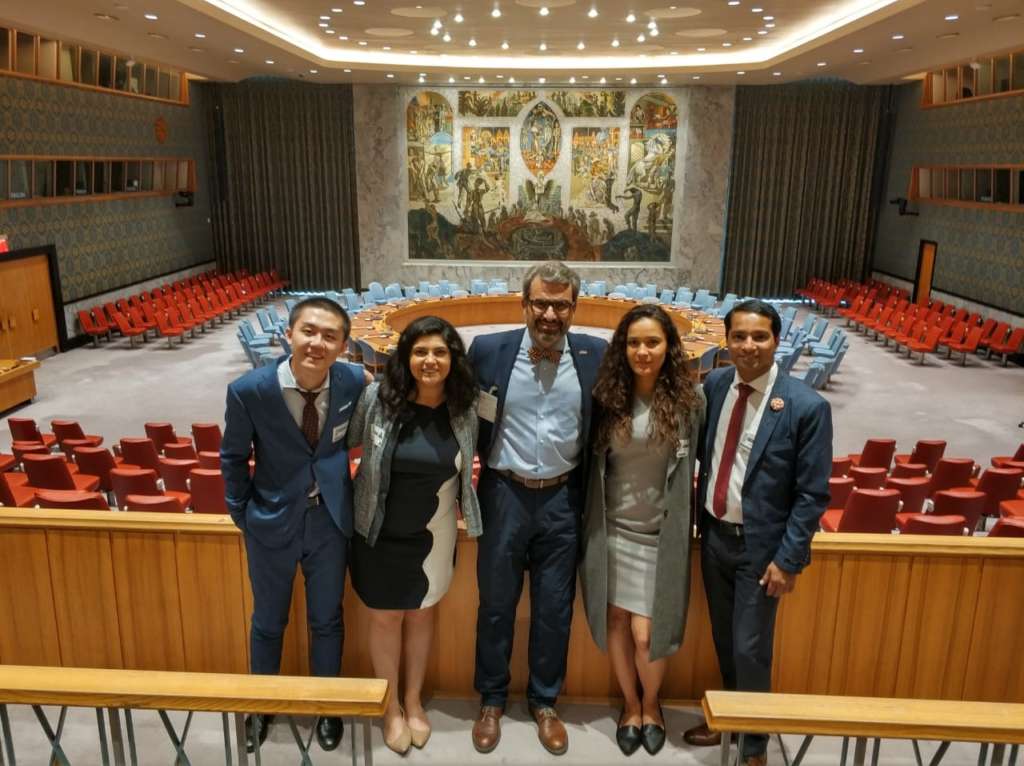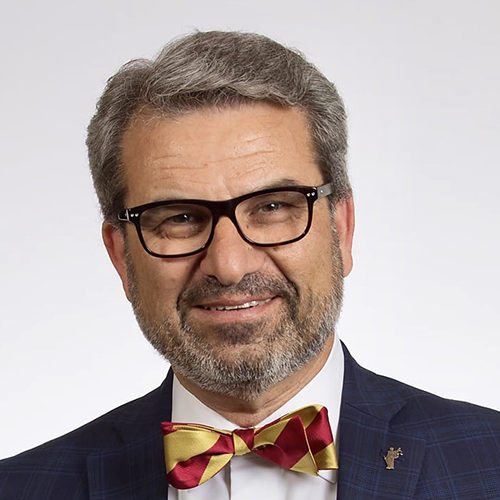Share This Article
One must be only human to feel the pain and the misery of 1.5 million Ukrainians displaced from their homeland. Coincidentally that number represents the number of my displaced ancestors, marched into the desert, and slaughtered in the first major genocide of the 20th Century. As I see the images on my television screen of marching grandmothers, I recall my grandmother’s story. She left her home in central Anatolia with her mother and sisters to march into the desert of Der Zor to die. Miraculously, she survived.
Unlawful wars.
Time and time again, I have spoken and written about men’s inhumanity to men and the charge of “Never Again!” I recently spoke about this to my graduate students. Sadly, the history of authoritarians and tyrants continues to repeat itself not because of lack of laws or treaties but the lack of our moral authority of nations, including mine. Armenians were left to fend for themselves in 1915 and recently in 2020 against the brutal aggression of authoritarians and war criminals.
While the world awakes to uphold the rule of law and the world order by attempting to help Ukraine, it may be too little too late for those who lost their lives during this unlawful war and for the 1.5 million people displaced, some permanently from their home and homeland. The “perfect storm” that devoured Nagorno-Karabagh during a pandemic and the economic interests of Russia, Azerbaijan, Turkey, and the European Union (EU) is now claiming Ukraine.
Never Again!
I want the world leaders to know that inaction against known injustice and a clear violation of international law has consequences. Every authoritarian tyrant in history has committed these atrocities with impunity because of the prior examples of inaction by the world community. In a telegram dated July 16, 1915, US Ambassador to the Ottoman Empire Morgenthau warned, “Deportation of and excesses against peaceful Armenians is increasing, and from harrowing reports of eye witnesses [sic] it appears that a campaign of race extermination is in progress under a pretext of reprisal against rebellion.” No one listened.
Adolf Hitler, in 1939, before the invasion of Poland, reminded his generals, “who still talks nowadays of the extermination of the Armenians.” After WWII, American Jewish Committee leaders testified before the United States Congress making this point: “Had there been a law for the punishment of genocide, the Turkish rulers, who had ordered the extermination of the Armenians, could have been brought to justice. Hitler would have known that he could not commit genocide with impunity.” There are laws against war crimes. I challenge the world to use them now.
It was only in 2020, 105 years after the Armenian Genocide, that my government, through President Biden, officially recognized the human tragedy that befell my ancestors. Starting in the mid-1980s, I advocated for moral authority all my professional life. The need for this moral authority is not because I could bring back my ancestors, but perhaps we could stop the next human tragedy.
Moral Authority
In a 2007 piece I authored in the University of Pittsburgh Law School’s “JURIST,” as the Chairman of the Board of Governors of the International Armenian Bar Association, I wrote, “[W]e Americans must insist that our leaders promote truth, justice, and the rule of law. We have a long tradition of accepting human dignity as an inalienable right and as the basis of our jurisprudence.” This phrase resonates today in the world community. We all feel distressed about the injustice committed by an aggressor against the people of Ukraine.
Sadly, we continue to fail in claiming this moral authority, especially when various economic interests trump our commitment to human values. While the photo op of the 2015 Paris Accord gave European nations their claim in climate change leadership, the EU continued its hypocritical high dependence on fossil fuel from Azerbaijan and Russia. Even though the United States has achieved energy independence on fossil fuel, we still buy Russian oil today. I now challenge the EU and my government to stop buying fossil fuel from these countries. The people in Nagorno Karabakh and now Ukraine are paying the price of that fossil fuel with their lives.

Violation of International Law and UN Charter
There is no way to sugarcoat this blatant violation of international law in invading a neighboring sovereign jurisdiction. Under no scenario, this Russian armed invasion of Ukraine may be legally permissible based on international law or norms. On the other hand, Ukraine’s self-defense is permitted under Article 51 of the UN Charter.
There is also precedent for intervention by other countries for humanitarian reasons to prevent large-scale loss of life. The UN Security Council authorized such an intervention in Somalia in 1992. After the launch of 600 missiles with some targeting civilian populations, it may be time for the UN to allow another intervention and expel those who oppose it. On February 24, 2022, UN Secretary-General Antonio Guterres said, “The use of force by one country against another is the repudiation of the principles that every country committed to uphold [sic]. This applies to the present military offensive. It is wrong. It is against the (United Nations) Charter. It is unacceptable.”
The Preamble of the UN Charter establishes human ideals to:
1. “save succeeding generations from the scourge of war,”
2. “reaffirm faith in fundamental human rights, the dignity, and worth of the human person,”
3. “establish conditions under which justice and respect for the obligations arising from treaties and other sources of international law can be maintained,”
Call to action
The UN Charter preaches tolerance, peace, and security for these ideals. What are these ideals if the nations of the world refuse to enforce them based on their interests? The human tragedy in Ukraine is not unique. Until countries like Azerbaijan and Russia commit to these ideals, there will be no lasting peace in the world. Until the world’s nations find an effective deterrent and are willing to seriously punish those who violate these ideals, the path to conflict will persist. The next known authoritarians of the world are lying in wait.

Frank V. Zerunyan is a Professor of the Practice of Governance at the University of Southern California (USC) Sol Price School of Public Policy (USC Price) and Director of Executive Education at USC Price Bedrosian Center on Governance. Professor Zerunyan oversees USC’s Reserve Officers’ Training Corps (ROTC) as the Director and University Liaison for the U.S. Air Force, Army, Naval Reserves ROTC, and Nautical Science Programs.
Professor Zerunyan’s principal areas of expertise include governance, public-private partnerships, civic and ethical leadership, land use, medical regulation, negotiation, and executive education. He lectures locally and globally to build capacity and foster leadership among public executives worldwide. He is the author of books, book chapters, and many short articles published nationally, internationally, and on USC Price’s “Faculty Perspectives.” Professor Zerunyan is often quoted in the media and is a USC resource for journalists as an expert in governance and leadership. He is also an expert on public administration at the United Nations Innovation Branch (formerly Capacity Building Branch).
For his influential advisory role in the Republic of Armenia, he was awarded LL.D. Doctor of Laws – Honoris Causa by the Public Administration Academy of the Republic of Armenia. Professor Zerunyan designs curricula and teaches at the American University in Armenia, Yerevan State University, and the Vazgen Sargsyan Military University in Armenia, with an honorary rank of colonel. He also teaches for the U.S. Navy at the U.S. Naval Service Training Command.
Professor Zerunyan serves on the editorial boards of the Public Administration Scientific Journal for the Republic of Armenia and the Ukrainian Law Review. He is on the board of councilors of Anahuac University Law School, Xalapa, Mexico (Consejo Consultivo de la Escuela de Derecho).
Professor Zerunyan earned his Doctor of Jurisprudence (Doctor of Laws) degree from Western State University College of Law and his Bachelor of Arts degree from California State University Long Beach. He also completed his advanced legal education in Corporate Taxation at the University of Southern California Law Center (USC Gould). He is a graduate of the California League of Cities’ Civic Leadership Institute.
Professor Zerunyan, trained and practiced as a lawyer, is a four-term Mayor and Councilmember in the City of Rolling Hills Estates, California. He serves on several city, county, and regional policy boards and committees. He was also a gubernatorial appointee under Governor Schwarzenegger, serving 38 million medical consumers on the Medical Board of California.

